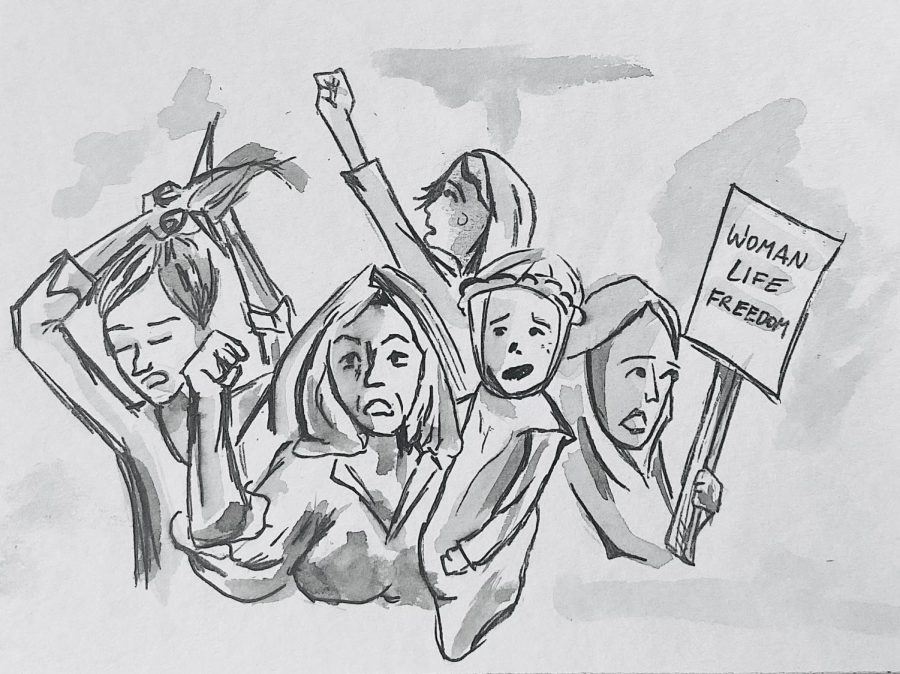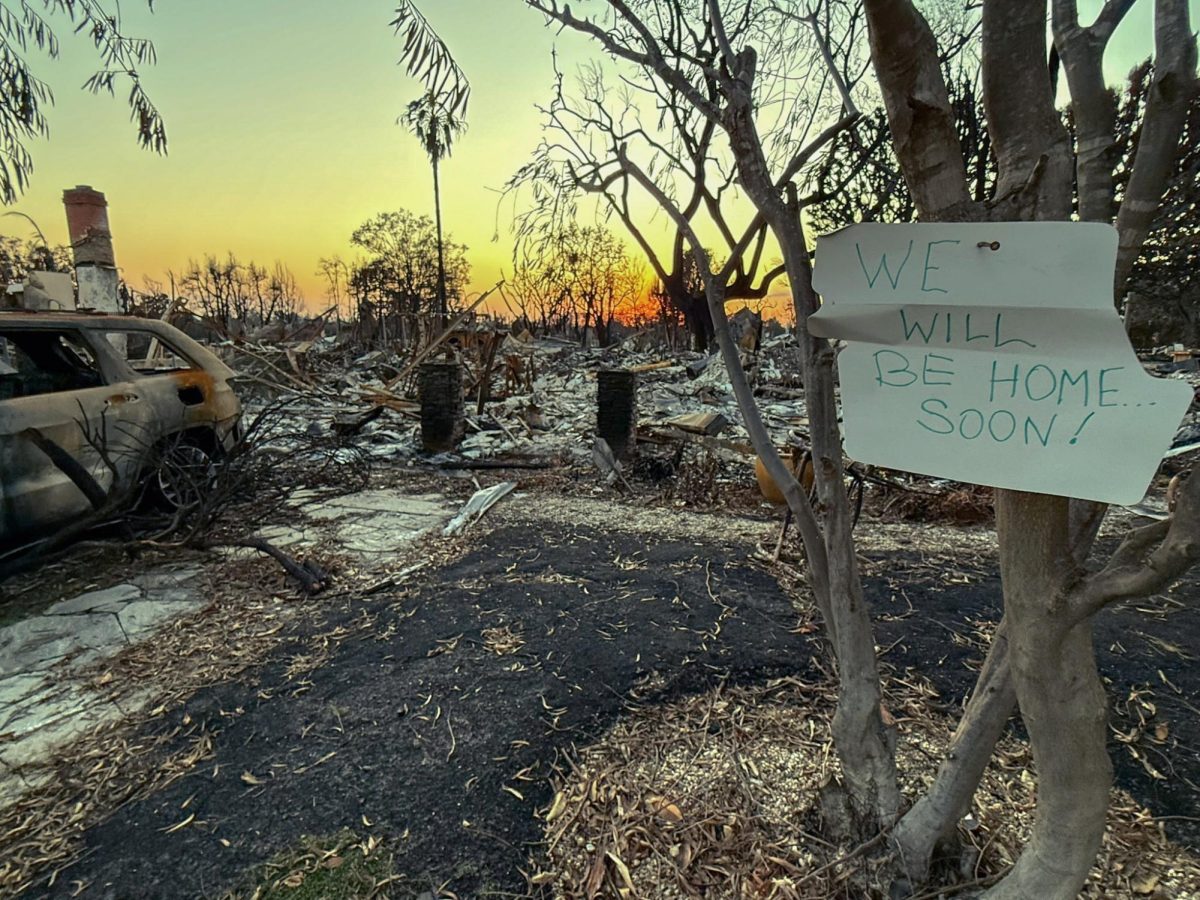Pali’s Iranian Community Sends a Message to Gen Z
December 12, 2022
Mahsa Amini, an Iranian woman detained by Iran’s police in mid-September, was beaten to death by the country’s morality police for improperly covering her hair with a hijab, violating the regime’s conservative dress code.
Amini’s death sparked outrage throughout the world. From schoolgirls marching in the streets with their hijabs in hand to university students leading protests while chanting “woman, life, freedom,” fearless Gen Z Iranians are the driving force behind this movement to revolutionize an oppressive government.
For many Iranians at Pali, the protests in Iran hit close to home.
The Middle Eastern Student Union (MESU) advisor Peyman Nazarian, a social science teacher, was born in Iran and immigrated to the United States when he was 10 years old. He said that his time living under the Iranian regime gave him a first-hand experience of the treatment of women by the Iranian government,
“When you suppress a group of people for so long, there is inevitably going to be this moment where people are going to be angry and just erupt,” he said.
Ultimately, Nazarian said that he is proud of the younger generations’ protests because “the people of Iran are finally working in collaboration with one another to bring their voice out and protest this injustice against women.”
However, Nazarian also said that he noticed a significant lack of discussion about the plight of Iranian women within the Pali community, adding that this concerns him because he believes that the first step to change is to educate others.
“One day, [I brought it up when] I started my class, and people had no idea what was happening,” Nazarian said. “There needs to be more of a discussion and more awareness [within] our school.”
Nazarian proposed that Iran’s history and its current state should be discussed during a Pali Period or in history classes in order to further educate all students and spark conversation.
“You know, the freedoms that we have in this country are sometimes taken for granted,” he added. “We certainly have obvious divides, but you always have to remember that we [also] have our quintessential constitutional rights that gives us the freedom to do what some other people are not lucky to have.”
Senior Class President Talia Davood also said that she noticed an absence of activism and discussion about Mahsa Amini and has been personally impacted by this injustice against Iranian women.
“I have never been to Iran before, but both my parents came here to escape religious persecution from the oppressive regime that’s still in the country,” Davood explained. “As an Iranian woman, I feel very compelled to try to do what I can to share what’s happening. I hate that people are enduring that right now and are unable to leave.”
Despite witnessing other Iranian students express anguish about the lack of women’s rights in their mother country, Davood said that she also observed a lack of awareness about Amini’s death in the larger Pali community.
“I brought [Mahsa Amini] up and [non-Iranian students] are like, ‘What are you talking about?’‘Who is Mahsa Amini?’” Davood said. “I never think it’s too late to educate yourself about what’s going on, but it’s also disappointing to see [peers] select which issues they want to talk about since this generation has the potential to do so much.”
Davood said she believes that the little discussion of this issue among non-Iranian students is caused by the connotation of Iran as a terrorist country, as she has noticed how that label translates to “a lot of invalidation of the actual citizens there.”
Inspired to take action and raise awareness, Davood organized a memorial for Amini by the flagpole on Sept. 28. She educated students about the purpose of the memorial and encouraged them to write messages of hope for those championing social change in Iran.
To continue their efforts to commemorate Amini, the Pali community gathered on the corner of Sunset and Swarthmore on Oct. 30 to march in solidarity for the rights of Iranian women. Organized by juniors Sarah Soroosh Moghadam and Clementine Causse, Iranian and non-Iranian protestors came together to spread awareness and garner the attention of politicians campaigning in the area.
Yet, there are still many who remain unaware of this discrimination and inhumane treatment towards Iranian women.
Davood calls upon Gen Z to stand together in this movement for freedom: “We can’t fully say we’ve progressed women’s rights when so many places around the world, including Iran, don’t. An attack on women’s rights somewhere else is an attack on all women’s rights.”
Editor’s note: Sarah Soroosh Moghadam is Tideline co-News Editor.












